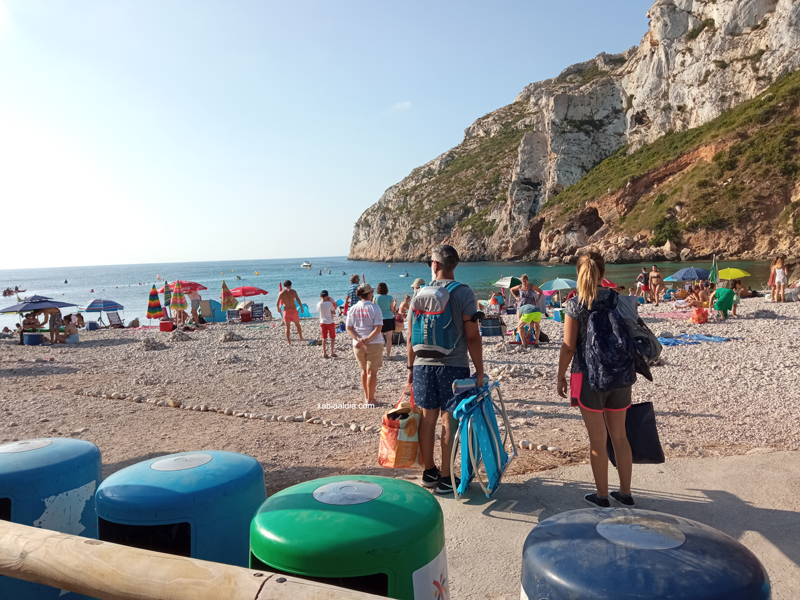Xàbia fails to qualify for EU sustainable tourism funding
These plans are financed with European Next Generation funds

Image from last summer, La Granadella, taken at 9.30 am on July 31st. SOURCE: xabiaaldia.com
Tuesday 16th November 2021 – CARLOS LÓPEZ with Mike Smith
The Valencian Tourism Agency announced a few days ago that almost a dozen destinations in the Comunidad Valenciana have applied to be considered for tourism sustainability plans as an ‘Extraordinary Destination’ which will be financed with funds that the EU has transferred to the countries to face the post-COVID crisis, an initiative known as Next Generation EU. However, Xàbia is not one of them.
The municipalities that will be considered to be financed in the 2021 annuity are Alcalà de Xivert, Alcoy, València, Benissa, Oropesa del Mar, Finestrat, Dénia, Bocairent, Cullera, Torrevieja and the Interior Community of the Tierra del Vino (Camporrobles – Caudete de las Fuentes – Fuenterrobles – RequenaSinarcas – Utiel – Venta del Moro – Villargordo del Cabriel). According to the Tourism Agency, 45 applications were presented, but only 11 met the minimum requirements required by the regional tourism department.
The Destination Sustainable Tourism Strategy is divided into a program of ordinary plans and another of extraordinary plans. The ordinary plans program encompasses the Destination Sustainable Tourism Plans, in which the Comunidad Valenciana already has four approved plans (Benidorm, Gandia, Peñíscola and Altea) with Dénia presenting its plan for approval last week.
The head of the Valencian Tourism Agency explained that “the first of the municipalities of the Comunidad Valenciana to enter the Destination Sustainable Tourism Plans was Benidorm, together with Gandia, and this year Peñíscola and Altea have been selected”.
European funds and Xàbia.
To all this, in the plenary session held at the end of last month, the C’s spokesperson, Enrique Escrivá, asked the councilor for Projects and Grants, Montse Villaverde, about the possibility that Xàbia Council could join any of the calls related to the promotion of the digitization and modernization of local administrations that are being launched by the regional government and funded by EU grants.
Escrivá added that, through such aid, there was a potential to “continue offering Xàbia as an intelligent, accessible, comfortable and sustainable tourist destination, capable of having a click, for example, to highlight which public services need to improve or are the most demanded during periods of great tourist influx, or what is the state to the beaches to avoid overcrowding; but above all, so that we become an enclave capable of protecting our beaches and our coastline from overcrowding and non-civic practices that degrade our environmental heritage”.
He also took the opportunity to claim once again, the call of the regional tourism department to take stock of the season, a request that the councilor from Compromís, Vicent Colomer supported during plenary session.
In response, Villaverde explained that European funds are linked to “strategies” and not specific projects and assured that the local government “is working on a comprehensive tourism strategy”, something that perhaps is related to what days later the mayor José Chulvi claimed that it was a coastal and pre-coastal plan.
What does seem clear is that for now, Xàbia and the millions of euros that will arrive from Europe do not belong in the same sentence. Or at least according to the things that the local government says publicly.





